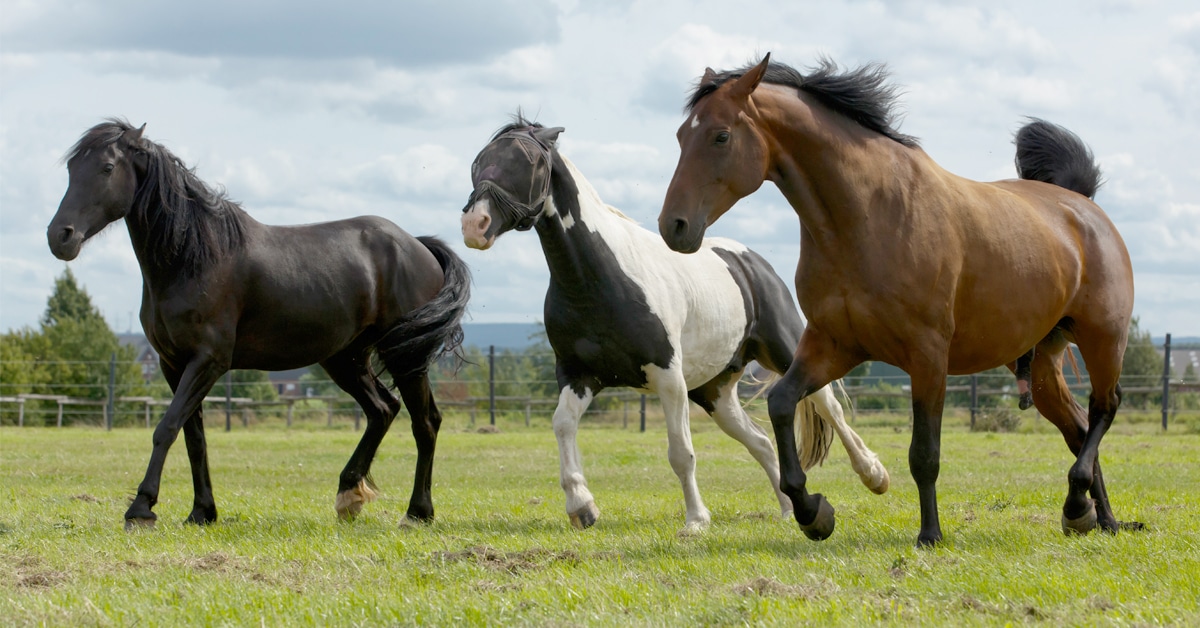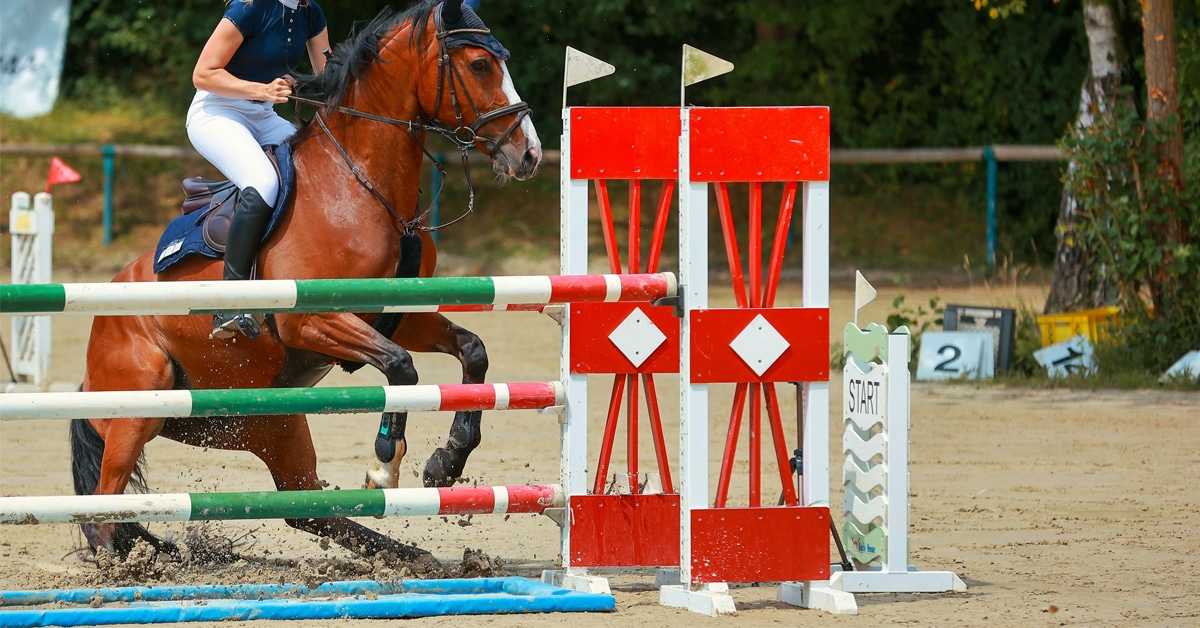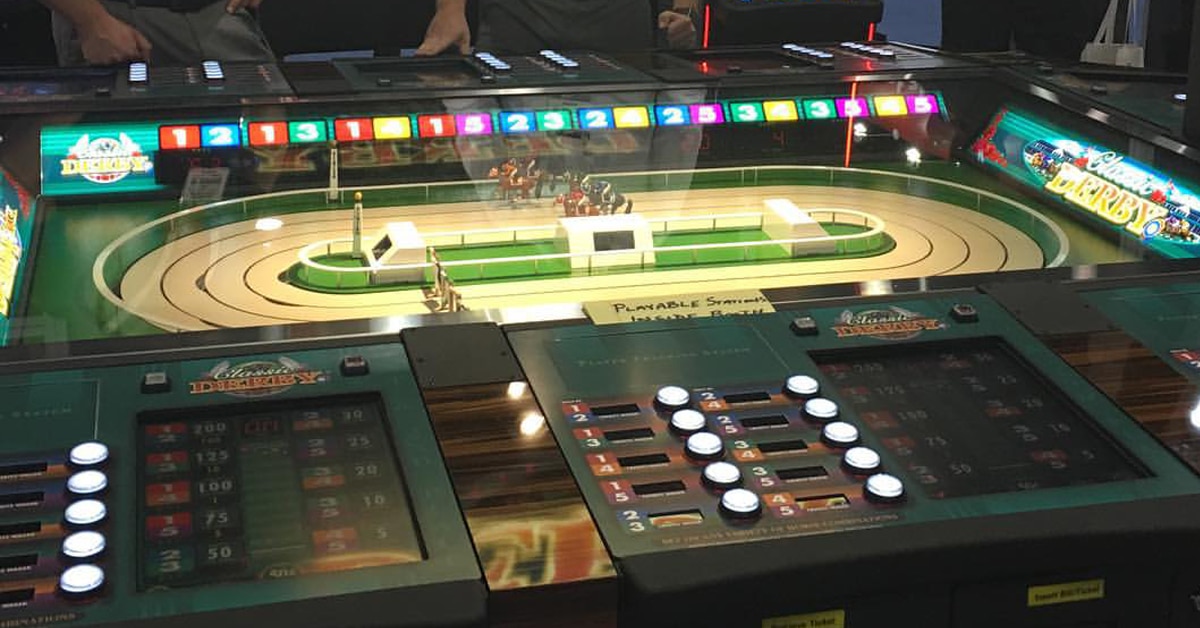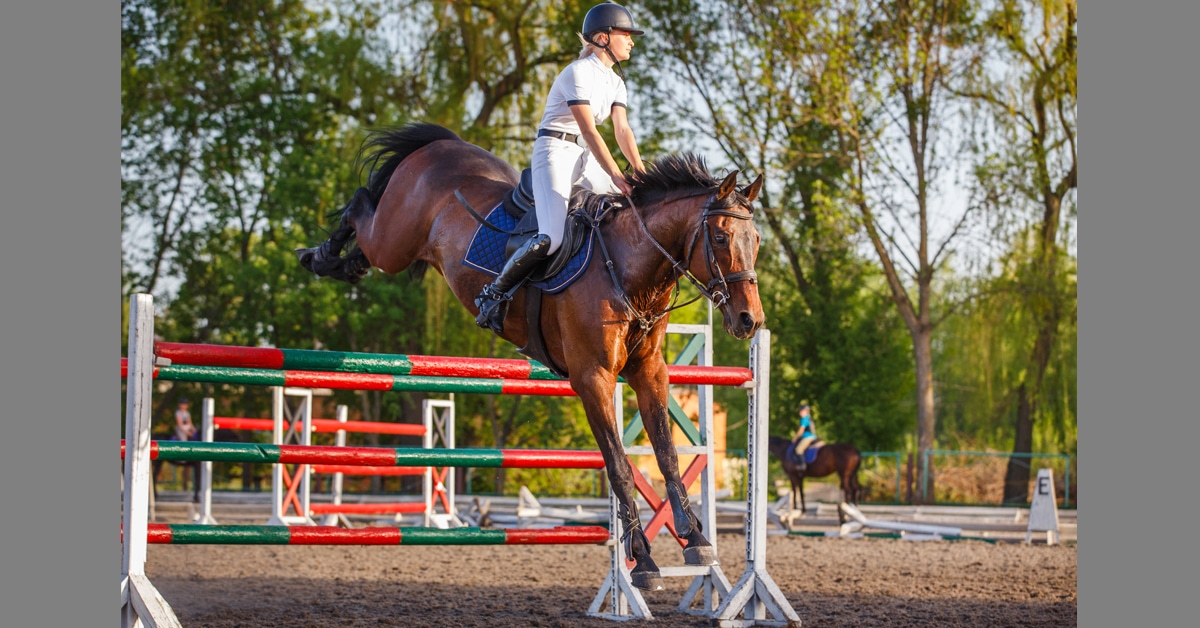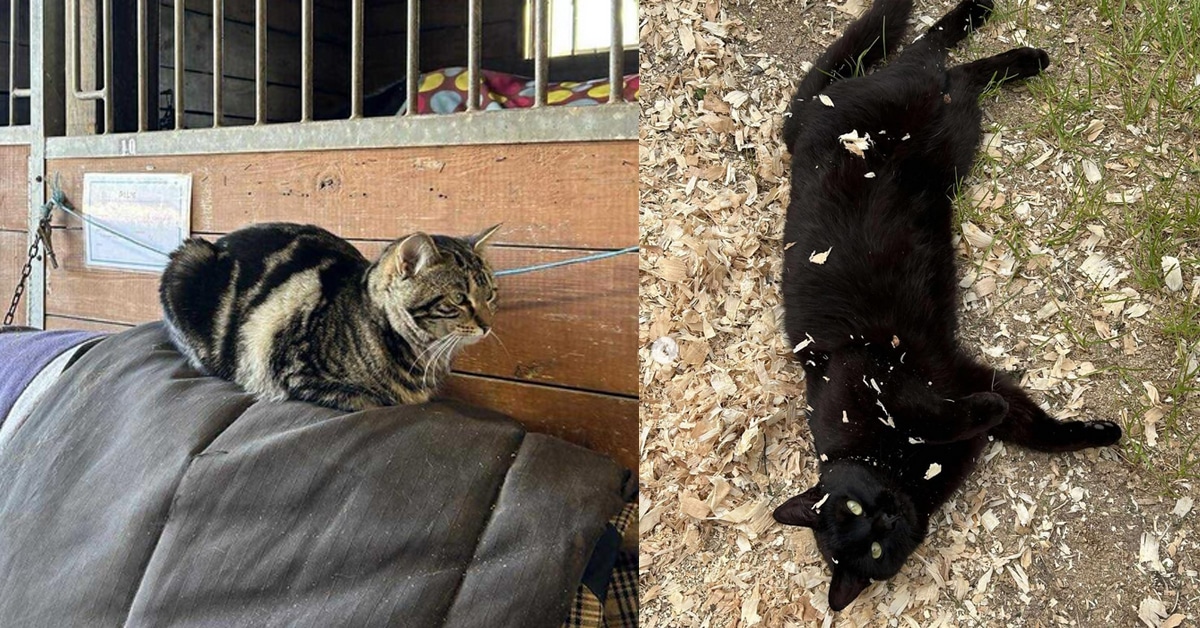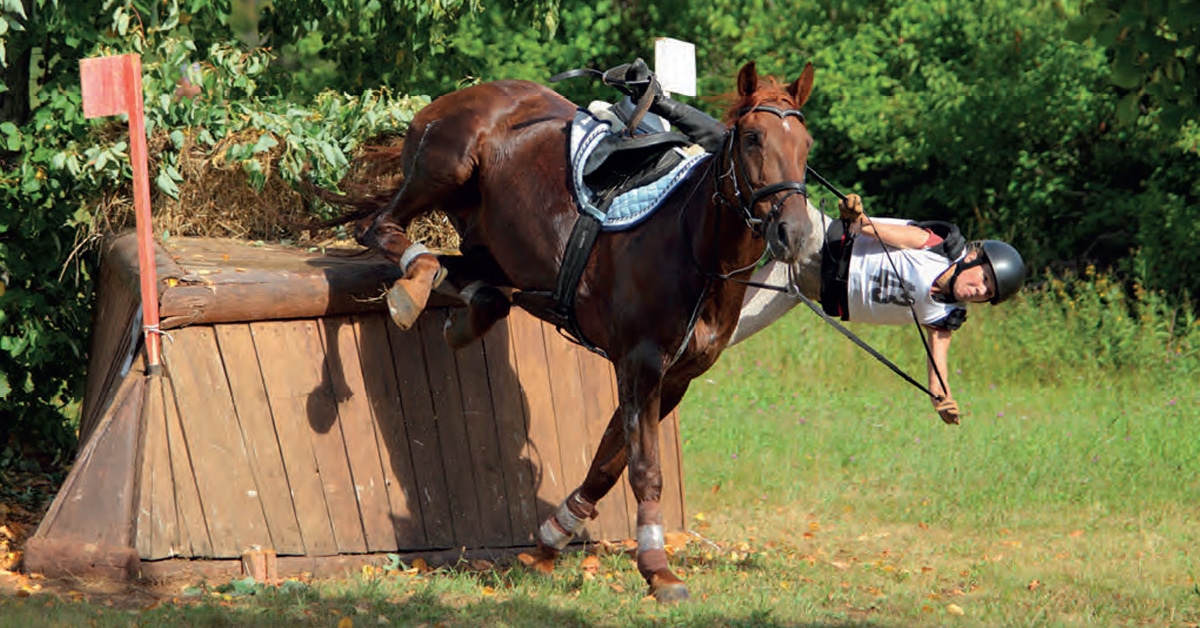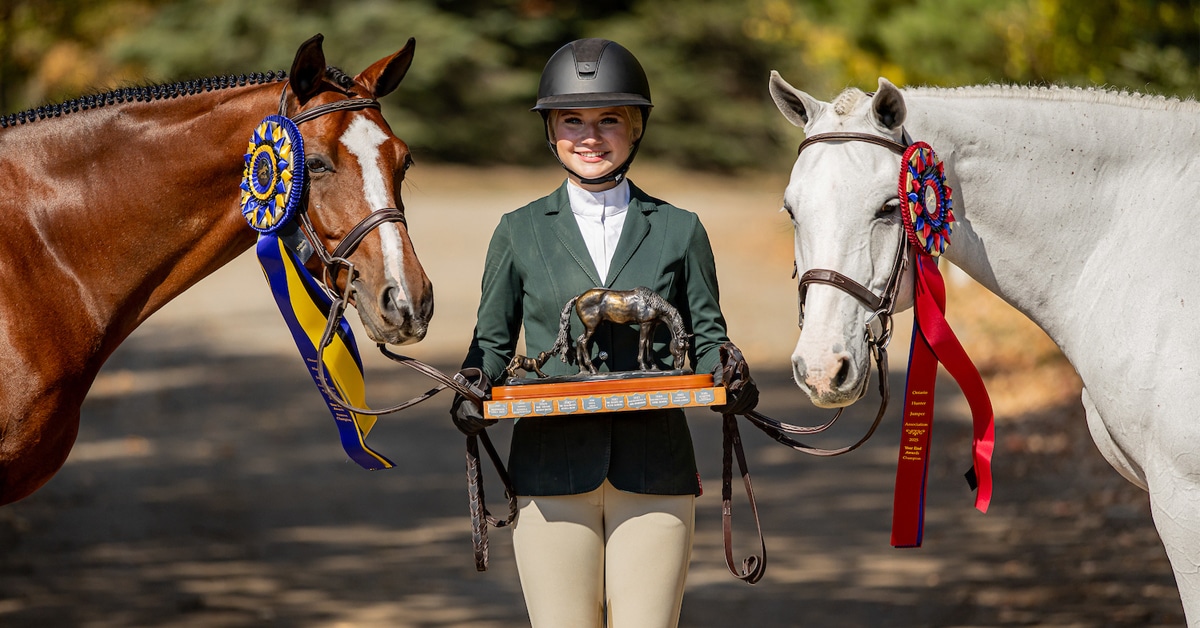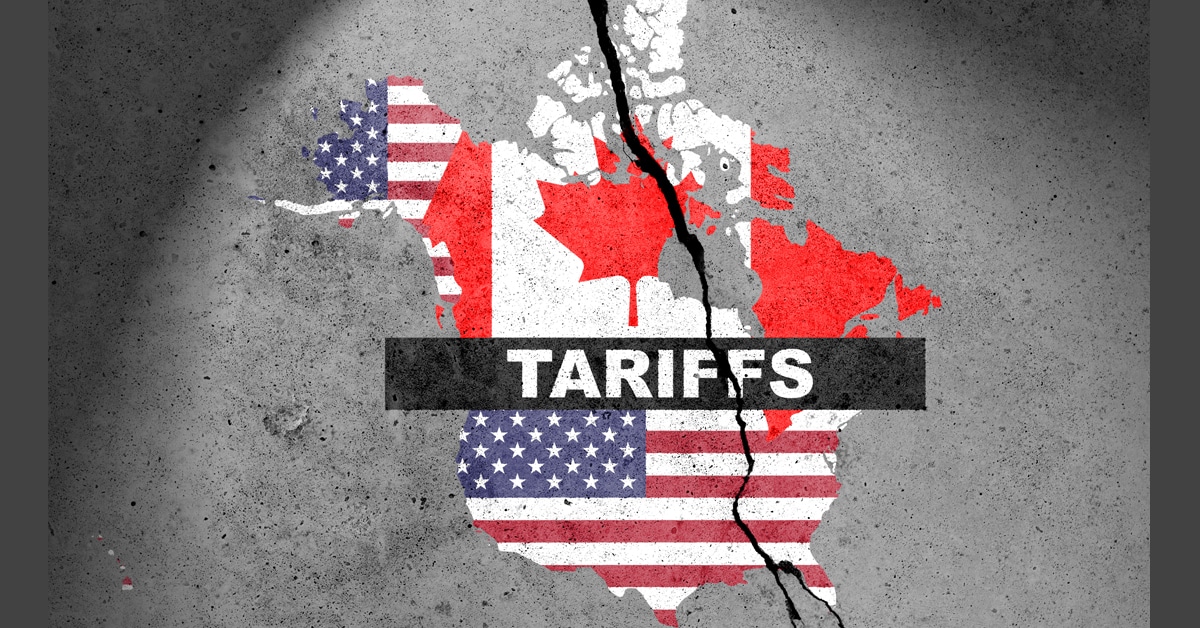I think my horse knows the sound of my aging diesel Smart car. She seems genuinely pleased to see me, and on rare occasions has offered a soft nicker at my arrival – a gesture guaranteed to instantly melt my heart. But does she love me?
In psychology, the question of love has been most extensively explored through attachment theory, first proposed by John Bowlby in the early ‘60s to explain an infant’s tendency to seek proximity and form strong bonds with a caregiver who provided protection, comfort, and support. Bowlby believed that the attachment system evolved to increase the infant’s chance of survival.
Although horses do not have the same kind of dependency on their human as an infant does for a parent, they do rely on us to some extent for their survival, and might well form an attachment bond with their caretakers. There is also adaptive value in forming a bond with someone of higher in the heirarchy to have ready access to one’s own bodyguard and a first-class ticket to desired resources. Since many horses today have limited or no opportunity to form attachments with other horses, it is possible that they may just settle for the next best thing – their human. But do they form an enduring bond for one particular human as Bowlby defined an attachment relationship? Ahh well … as my scientist colleagues would say, that is an empirical question. Let’s take a look.
Do horses attach to each other?
Certainly. Horses have adapted a strong propensity to form long-term stable groups and lasting social bonds, as their survival in the herd depends upon maintaining group cohesion and an organized social structure. They maintain these bonds through sophisticated skills of social cognition (the ability to know, recognize, understand rank, and respond appropriately to group members), and through mutual grooming (or allogrooming) which seems to play a key role in cementing enduring pair bonds (dare I say “friendships”) and thus contributes to herd stability. Allogrooming seems to have inherent calming properties by lowering heart rate, decreasing cortisol levels, and increasing endorphin production (Feh, 2002).
Do people attach to horses?
Probably. Bowlby identified key characteristics that define an attachment bond: Proximity seeking (we stick close to our attachment figure), Secure base (we use our attachment figures as our rock to venture out and explore); Safe haven (we seek out our attachment figure in times of threat); and Separation anxiety (separation, or the threat of separation causes distress). There is convincing literature suggesting that people attach to their companion animals, exhibiting these key attachment characteristics (e.g. Kwong & Bartholomew, 2011), and it is arguable that horses, too, may fulfill this role for their owners.
Do horses attach to us?
The jury is out.
Social cognition: Do they know who we are?
Horses’ social cognition skills may also extend to their understanding of significant humans in their lives. Lansade’s group (2018) found that horses who were groomed sensitively showed more contact-seeking behaviors, and more positive behaviours, than horses who were groomed in a standard way, and also remembered these grooming experiences one year later. Carol Sankey has also found that horses’ memories for even brief pleasant and unpleasant experiences predicted their approach and/or avoidance to both familiar and unfamiliar people several months later (2010; 2011).
Horses also seem to know the relevant humans in their lives by their voices. Proops and McComb (2012) tested 72 horses who heard an audio recording of their name being called by either a familiar or unfamiliar person, while the same two people stood in front of the horse. Horses consistently matched the voice to the correct person, even when both people were familiar.
Heart coupling: Are they emotionally in sync with us?
Researchers have also explored the human/horse bond through “heart coupling” – the correspondence of heart rate and heart rate variability when horse and human are engaged in various activities. Although the research is not always consistent, there is some suggestion that horses may be emotionally tuned in, and that this emotional connection may be an important precursor for an attachment relationship. Bridgeman Pretty, and Terry (2011) found that 13 of 17 horse-rider pairs showed significant heart-rate synchronization during competition. In fact, the rider’s anxiety levels could be accurately classified into low vs. high by looking only at the heart-rate scores of their horses.
The safe haven: Do they depend on us for comfort? The safe haven
Andrew McLean has proposed that the soothing contact of wither scratching, which appears to have the same inherent calming properties whether delivered by horse or human (Feh & Mazieres, 1993), may be comparable to the tactile comfort that an infant seeks with an attachment figure or close caregiver (ISES, 2013). He argues that when we touch our horses in this way, we lower arousal, make it more likely that our horses will see us as their safe haven and secure base, and thus foster an attachment bond. (2014).
Sankey investigated the power of wither scratching vs. food rewards in training horses to stand for one minute without being held or tied. Horses then completed “the motionless person test” where a horse is free to interact with a person standing in an enclosure. The time it takes the horse to approach the person, and how long the horse stays close, is recorded. Not only did Sankey’s food-rewarded horses learn the task more easily (in contrast, only 4 of the 10 struggling, grooming-rewarded horses achieved mastery), they also approached their trainers more quickly and spent more time at their side than grooming-rewarded horses. Although not a measure of “attachment”, Sankey’s findings suggest that horse-to-human bonding may be motivated more by carrots than by cuddles.
But are they “attached” to us?
Creative researchers have been able to measure the strength and quality of dogs’ attachment to their owners by examining the variations in separation distress when parted from their owners and the dogs’ responses upon reunion (Topal et al., 1998). We have not, as yet, created a measure to test horses’ attachment to their owners. However, if we revisit Bowlby’s key attachment characteristics, it is clear that horses are not the same as dogs. For example, does my horse always want to be close to me? Does she use me as a secure base from which to explore her environment? Is she anxious when I leave the barn? Or go on holiday? Am I irreplaceable? I think not.
And yet I will still come to the stable every day, pay the bills, and be my horse’s most devoted slave for the intermittent reinforcement of that occasional heart-melting nicker. Am I attached to my horse? Undoubtedly. Is she to me? That is a harder sell. If horses do attach to their owners, as they would to one another, sadly, this may be for lack of a better (i.e. equine) alternative and/or your access to resources they find valuable.
If you want your horse to love you, start building those emotional intelligence muscles. Try to see the world from your horse’s point of view. When we consider what horses evolved to do – eat grass and hang out with their buddies – they make a tremendous stretch when they live the life we have imposed upon them and perform the extraordinary feats that we ask of them every day.
The Latest
